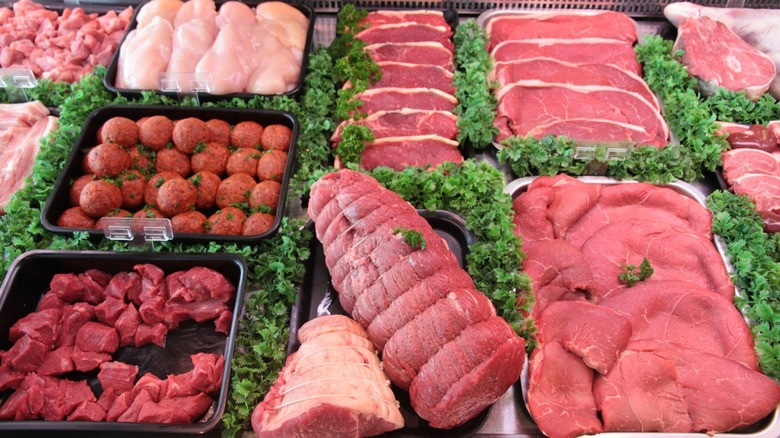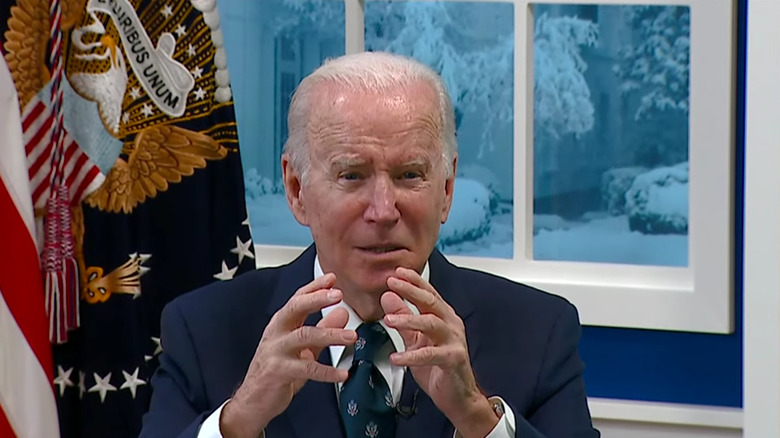How The Biden Administration Plans To Break Up The US Meat Monopoly
Have you ever played Monopoly and faced traveling down the final row towards "Go" when all the green and blue properties in that row are owned by one person (usually your meanie sibling)? That's usually the end of the game. When control of something, (in the case of the iconic board game, it's property; in real life, it's often the means of production), falls into the hands of a single entity, it's pretty much game over. According to Economic Times, a monopoly occurs when a single seller becomes the market controller and price maker.
The American meat industry is facing this scenario, as the means of processing meat is largely dominated by four companies that control 85% of the beef market, according to a White House fact sheet that says these companies have detrimentally affected small and independent processors, farmers, and consumers. The companies referenced were Tyson, JBS, Marfrig, and Seaboard, according to Axios.
The White House remarked that "when dominant middlemen control so much of the supply chain, they can increase their own profits at the expense of both farmers–who make less–and consumers, who pay more." Everyday shoppers are certainly feeling the pinch, as meat prices are up 16% from last year, with beef seeing price increases upwards of 20%, per PBS. The Biden Administration has noticed and arranged a virtual meeting with independent farmers and ranchers, as well as Agriculture Secretary Tom Vilsack and Attorney General Merrick Garland, to talk about possible steps to alleviate the situation.
We all need to eat
President Biden, saying that "Capitalism without competition isn't capitalism, it's exploitation" per the Bloomberg Twitter account, has vowed to curb the power of conglomerates in the food industry. Monday he introduced the Action Plan for a Fairer, More Competitive, and More Resilient Meat and Poultry Supply Chain, per The White House, aimed at creating more competitive markets. The administration's plan includes an investment of $1 billion, paid for from funds allocated by the American Rescue Plan, which he signed in March, to support independent processing plants, provide affordable loans for smaller farms and businesses, train meat and poultry workers, and implement infrastructure improvements that will improve the supply chain.
Biden also thanked bipartisan members of Congress, who are drafting legislation focused on pricing transparency in the meat-processing industry. AG Garland spoke to the Justice Department's commitment to working with the Department of Agriculture to enforce federal antitrust laws, launch a portal for farmers and ranchers to report issues, and strongly defend whistleblowers. Of course, there has been pushback from the industries affected, according to PBS NewsHour (via YouTube). Tyson (who reported an 11.7% market share increase last year) points to higher labor costs, which have been passed on to consumers.
Monopoly is a game; meat prices are real. This issue is one of the few that enjoys bipartisan cooperation, apparently, as hands are reaching across the aisle in an effort to combat the monopoly problem, per Axios. Because, in the end, Red, Blue, Purple – we all need to eat.

